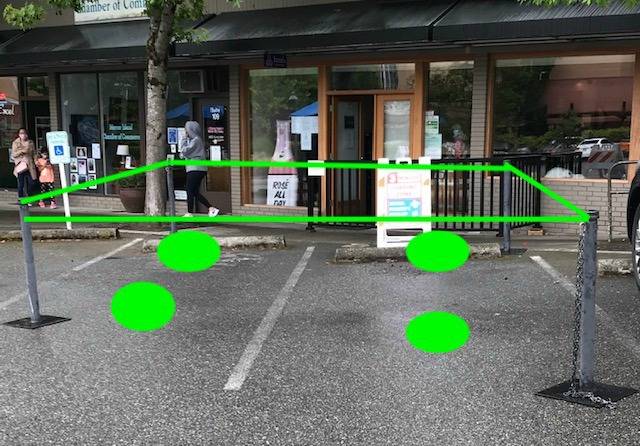When the coronavirus pandemic hit, Sarah Bluvas was reassigned from the city of Mercer Island’s Parks and Recreation Department to the newly created role of small business liaison as part of the city’s emergency operations center.
While times continue to be tough six months down the line, Bluvas is excited to become acquainted with local business owners, many of whom are Mercer Island residents. It’s a rewarding and challenging job and she notes that people possess the hope and determination as they attempt to weather the economic storm and reach toward thriving in the long run.
“Both our city manager and our city council recognize how critical the local business community is to what makes a healthy and vibrant community, but also what makes a healthy and vibrant city in general. I know that we’re working as hard as we can to provide more support to local businesses,” said Bluvas, who has a background in economic development through her graduate studies.
Early in the pandemic, the city came to the aid of businesses by implementing initiatives for retail and food priority pickup zones and a Takeout Tuesday campaign.
In a continuation to support businesses, the city council recently passed an ordinance allowing eating and drinking establishments to extend outdoor seating availability for the next six months or until King County advances from its current Phase 2 status through to Phase 4. The ordinance makes it so that owners can apply for permits with the city’s Community Planning and Development Department to expand their service onto public right-of-way property or to work with their landlords/property owners to use vehicle stalls in nearby private parking areas for seating, according to a city release.
Currently, outdoor seating at restaurants is allowed but can only be at 50 percent capacity.
The city has waived the $350 fee — via King County emergency funds — associated with a staff review for the permits because businesses have been struggling, said Bluvas, adding that the aforementioned amount is the only fee usually needed to be paid for the permits. Businesses are allowed to skip the usual design commission review and are just working with a city code official, who will follow up with businesses with an overview.
Businesses need to make sure they have the appropriate insurance, along with a certificate of insurance that names the city as an additional insured in the public-property scenario, Bluvas said.
For businesses who are adjacent to right-of-way property, the city is trying to review the permit applications within three business days.
Barrels Wine Bar in the Boyd Building was the only business to be issued a permit as of the Reporter’s press time, Bluvas said.
The Kennedy husband-and-wife ownership team of Joe and Tina — she grew up on the Island — poured their business into town about two years ago and plan to expand outdoor seating in front of their establishment. They received their permit three days after applying and at press time were working with the Liquor and Cannabis Board on the next steps of the process.
It’s been a challenging procedure, Joe said, as the LCB had to approve the Kennedys’ floor plan and more, plus the board received about 400 similar permit applications from across the state in the last two weeks. The Kennedys hope to get their new set-up situated by the fall, Joe added.
The Kennedys’ plan is to utilize two parking spaces with four wine barrels as tables and seating a dozen customers — well over six feet apart — in the approximately 15-by-19-foot area.
Barrels’ neighboring business owners are on board with the expansion, but losing the two parking spaces will impact everyone, Joe said. He added: “We made it very clear in our email to the city that we would be more than happy to allow people to park in our spaces, that we pay for in our rent, while we’re not open so that people can use those to shop at the Boyd Building.”
It’s that type of camaraderie that pleases Bluvas, who added that the MI Chamber of Commerce has played a crucial role in joining and jumpstarting conversations between the city and business sector.
“We’re really encouraging businesses to work collaboratively with each other and with the city in order to identify the best solutions,” said Bluvas, who has been reaching out to other cities to see how they’re handling outdoor-seating options. “Really try to organize how we work together during this time to get through it.”
For more information about outdoor-seating permitting, contact Bluvas at sarah.bluvas@mercergov.org.


